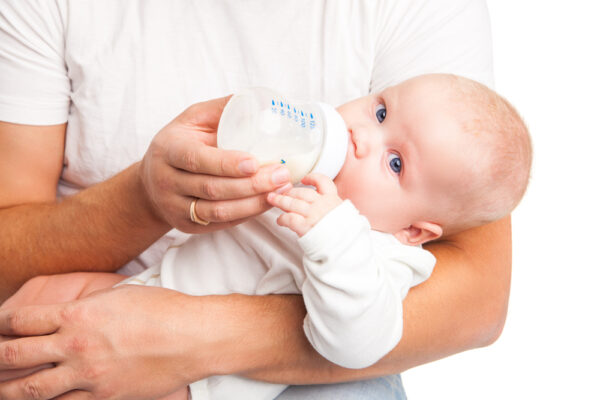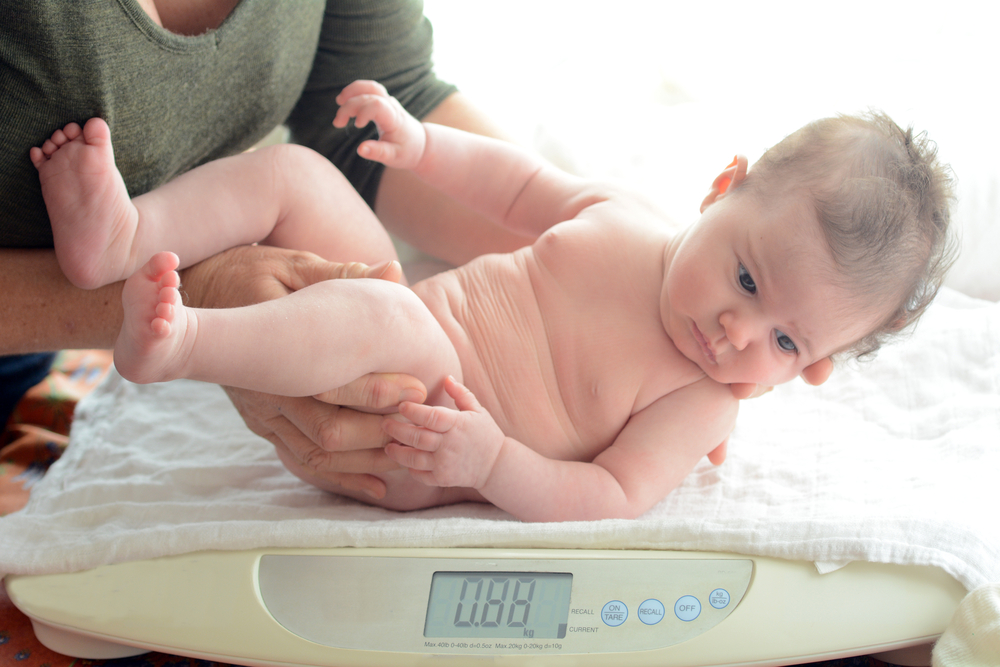Weight gain:
In the few days after birth, it is normal for your baby to lose up to 10% of their birth weight. Healthy babies that are feeding well will usually get back to birth weight by 2 weeks of age or 3 weeks at the latest.
Weight checks in the early weeks should be at least 48 hours apart to avoid unnecessarily alarming parents as the baby could appear to have lost weight due to the weight check being before or after a feed, baby passing urine or having a large bowel movement prior to weighing.
Something as trivial as a discrepancy between scales used to measure your baby’s weight from the hospital, home visiting scales, doctors or nurses centre can add undue stress and worry for no reason. If this may have occurred, try to use the same scales for future weight checks.
No weight gain or loss of weight over a few days or more must be taken seriously, your health professional will guide you on the next steps.
Breastfeeding:
If breastfeeding, an assessment of breastfeeding technique by your midwife, lactation consultant or maternal and child health nurse is required. If breastfeeding appears to be going well but weight gain remains low, then a thorough medical examination is required to exclude medical illness.

Bottle Feeding:
If bottle feeding an assessment of bottling technique and baby’s suck and swallow is helpful. Checking the formula is being made exactly as the instructions state with correct formula to water mixture. If bottle feeding appears to be going well but weight gain remains low, then a thorough medical examination is required to exclude medical illness.
Sometimes there can be discrepancy between scales from the hospital, home visiting scales, GP’s office, nurses centre. If this may have occurred, try to use the same scales for most future weight checks. No weight gain or loss of weight over a few days must be taken seriously and a check of bottle-feeding technique, formula type, amount, frequency of feeds and if this is all normal then a medical examination is required to exclude medical illness.

Growth Charts:
The best way to monitor growth over time is by using a growth chart, in Australia the World Health Organisation (WHO) growth charts are usually used and we expect babies to grow in a similar curve to that on the graph. If a baby seems to be crossing growth curves particularly downward, an assessment of feeding and a medical examination is required.
Many parents want their baby to be above the 50% percentile however it is important to understand that all percentiles are normal. Half of all babies should be above the 50th percentile and half below it. If your baby is particularly high or low your health professional will likely keep a closer watch on growth, but it is probably normal.
Average weight gain:
Birth to 3 months is 150-200gms a week
3 to 6 months: 100-150gms a week
6-12 months: 70-90gms a week
Don’t be alarmed if your baby is not gaining exactly this amount, be guided by your health care professional and if you are worried get a second opinion.
I feel that there is often too much emphasis put on weight gain and there is a large variation of what is normal in growth and if your health care professional is not concerned then you shouldn’t be either.
There are other signs your baby is growing such as:
- They have at least 5 heavy wet nappies a day
- Passing soft poos regularly
- Growing out of clothes in length or width
- Going up a nappy size-too tight around waist or legs
- Getting too large for their bassinet
- Chubby cheeks, arms or legs
- Taking up more space in their car seat
- Feeling heavier to carry
If you are concerned about your baby’s weight gain seek support from health professionals such as your maternal & child health nurse, midwife, doctor, paediatrician, or lactation consultant. Sometimes you will need a few different professionals to get to the bottom of what is going on.
Watching your baby grow over time is a very satisfying experience, it’s amazing to watch how quickly they grow and develop.
To view on YouTube:








